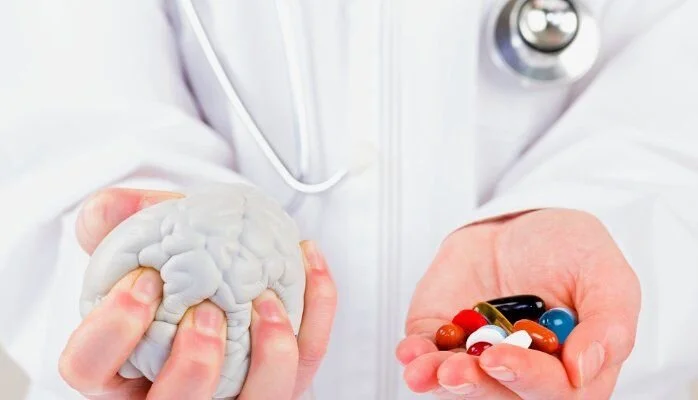6 Vitamins & Minerals That Boost Brain Power
by Ella James for Medical Daily:
The human brain is a complex organ requiring many different nutrients to function properly. Nutritional deficiencies have been shown to contribute to the development of psychiatric disorders, age-related cognitive decline, and developmental disorders. On the other hand, both human and animal studies show that increased intake of brain-supporting nutrients improve various aspects of cognitive functioning such as learning and memory. For all these reasons, it is important that you ensure your brain is getting the right kind of nutrients. Here are 6 of the essential vitamins and minerals for a healthy brain.
1.THIAMINE (B1)
Vitamins from the B group are considered to be particularly important for good brain health. Thiamin is one of the many B vitamins that is found abundantly in the brain and nerve tissue. It plays a role in the conduction of nerve impulses, according to an article published in The Journal of International Medical Research. Furthermore, a severe lack of this vitamin can lead to Korsakoff syndrome, a chronic memory disorder most often seen in alcoholics and those suffering from diseases such as AIDS.
2. FOLIC ACID (B9)
Folic acid refers to different compounds known as folates, and can be obtained from different foods such as spinach, asparagus, and lentils. Half of the body’s stores of this vitamin are in the liver, which is why liver damage can lead to a deficiency of several key B vitamins. Folic acid also plays an important role in the synthesis of amino acids and the formation of nerve tissue. The metabolism of folic acid is highly dependent on the supply of other vitamins of the B group. A deficiency of this and other B-vitamins is associated with developmental problems in children. Furthermore, a study on aged rats found how to improve memory with folic acid supplements for 8 weeks.
3. ASCORBIC ACID (VITAMIN C)
The highest concentration of this essential vitamin is found in the brain, especially in the pituitary gland (400mg/kg). You can get high amounts of this powerful antioxidant from citrus fruits and green vegetables. Vitamin C is important in the synthesis of the neurotransmitter dopamine, but it also protects the brain against oxidative stress. Because this vitamin cannot be stored in the body, it is important you get adequate daily amounts from food, around 90mg daily, according to Mayo Clinic.
4. CALCIUM
As far as minerals are concerned, Calcium is the number one essential mineral for healthy brain functioning. It plays a central role as a nerve cell messenger. It also regulates neurotransmission and controls nerve excitability. Low levels of this essential mineral are usually rare as the body has a large reservoir of this mineral in the bones. However, some drugs can deplete the levels of this mineral which can lead to various health problems.
5. MAGNESIUM
Magnesium is important for the conversion of many B vitamins into their active form. In other words, taking any vitamin supplement on its own would be futile without magnesium and other minerals as their interplay is what makes the brain work. One study found that administration of magnesium supplements to aged rats improved working and long-term memory. The magnesium in cell membranes is also important for the transmission of impulses. Furthermore, magnesium and calcium need to be both in ideal amounts in the body to prevent excitability of the nervous system. A deficiency of either one can lead to neurological problems.
6. ZINC
Zinc is found in high amounts in certain so-called Zinc-containing neurons which are found exclusively in the forebrain. Scientists don’t know what role zinc plays in the maintenance of brain health, but its deficiency is associated with different neurological and psychological impairments. For instance, alterations in zinc homeostasis were found in Parkinson’s disease and Alzheimer sufferers. Foods high in zinc are pumpkin seeds, beef, and shrimp, but you can also find this mineral in some top memory pills available on the market.
CONCLUSION
Our brain is an organ whose complex functioning largely depends on a great number of micronutrients. Studies show that vitamins of the B group, vitamin C, and minerals are important for normal brain functioning. Furthermore, a deficiency of any of these vitamins can lead to developmental problems in children and psychiatric illnesses in adults. Getting your daily dose of these essential micronutrients is important if you wish to preserve your brain health and mental agility.
Source: http://bit.ly/2bYCQGO

